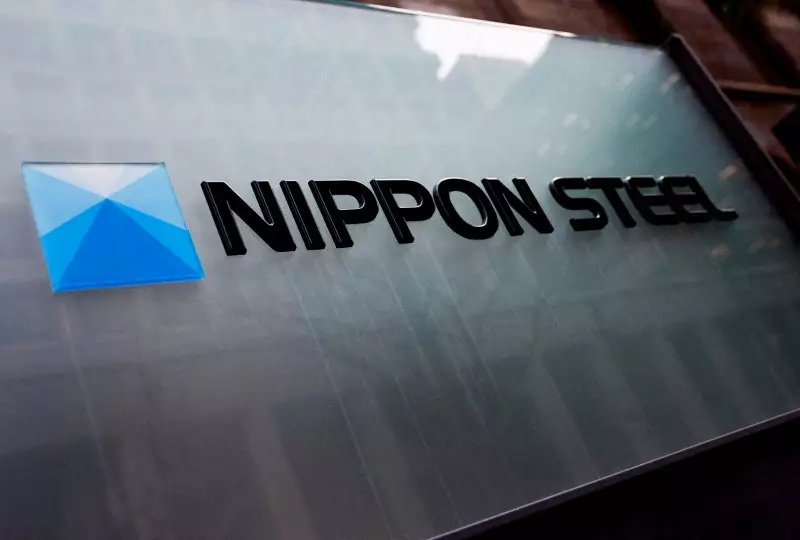The saga surrounding U.S. Steel’s proposed acquisition by Japan’s Nippon Steel has evolved into a complex web of political maneuvering, legal challenges, and national security concerns. As the two steel titans find themselves pitted against U.S. President Joe Biden’s administration in a legal showdown, numerous layers of implications for both the steel industry and international relations are unfolding. This article seeks to dissect the events leading to the lawsuit filed by U.S. Steel and Nippon Steel against the Biden Administration and explore the broader ramifications for American industries caught in geopolitical crosshairs.
The narrative of this acquisition is rife with ambition, beginning on August 13, 2023, when U.S. Steel announced its intent to explore strategic options following unsolicited bids. This marked a pivotal moment, transitioning a historically influential American entity toward potential foreign ownership. An initial offer of $7.3 billion from Cleveland-Cliffs was rejected, leading to further negotiations and bids. Notably, the United Steelworkers union publicly endorsed Cleveland-Cliffs, indicating an internal division about the future ownership of U.S. Steel.
Tensions escalated when Nippon Steel unveiled its $14.9 billion acquisition proposal on December 18, 2023, sparking immediate resistance from certain U.S. senators who cited national security concerns. Such political pushback culminated in the White House’s assertion that the deal would undergo “serious scrutiny” due to U.S. Steel’s critical role in domestic production.
The subsequent legal battle gained momentum in early January 2025 when President Biden formally blocked the acquisition on February 3, citing national security concerns. U.S. Steel and Nippon Steel wasted no time in challenging this decision, initiating a lawsuit that has now put both companies in a high-stakes confrontation with the federal government.
Political Influences: National Interests vs. Globalization
The proposed acquisition underscores the dichotomy between national interests and globalization. As the Biden administration pushed back against the deal, the rhetoric surrounding the need to maintain American production capabilities took center stage. At a time when American industries are grappling with various pressures, from supply chain disruptions to rising costs, the idea of a foreign company controlling a foundational sector like steel has stirred robust debates.
Indeed, the involvement of key political figures such as U.S. senators and labor unions has adeptly showcased how intertwined economic interests and political aspirations are in the current landscape. For instance, the strong stance taken by the United Steelworkers union in supporting Cleveland-Cliffs’ bid reveals a deep-seated belief among labor representatives about preserving American jobs against foreign competition. Such sentiments resonate well with a growing trend aiming to anchor domestic industries amid fears of globalization’s pitfalls.
With lawsuits already filed, the conflict around the Nippon Steel acquisition is set to enter a new phase replete with legal hurdles, the outcomes of which could set significant precedents for future foreign investments in strategic U.S. industries. The complexity of antitrust laws and national security regulations will be tested as both parties maneuver through what will likely be a protracted legal process.
Should the courts ultimately favor U.S. Steel and Nippon Steel, it could signal a new era for foreign investments in the U.S., potentially encouraging other international stakeholders to pursue acquisitions after facing similar scrutiny. Conversely, a ruling in favor of the Biden administration might reinforce protective stances toward domestic industries, heightening scrutiny for future foreign takeovers.
Furthermore, the implications extend beyond legal ramifications. Economic consequences for both domestic and international players in the steel industry highlight how interconnected today’s markets are. As Nippon Steel promises substantial investment in U.S. Steel’s operations—along with the appointment of a high-profile lobbyist like former Secretary of State Mike Pompeo—the stakes continue to rise.
As this contentious landscape evolves, the future of U.S. Steel remains enveloped in uncertainty. The legal battle against the Biden administration will not only determine the fate of Nippon Steel’s ambitious acquisition attempt but may also illuminate larger themes regarding national security, economic sovereignty, and labor interests. In a world where industries are increasingly intertwined, understanding the implications of such acquisitions becomes paramount, resonating far beyond the realm of steel and metals. The ultimate resolution may shape not only the trajectory of U.S. Steel but also the broader dialogue on America’s role in the global market and how it navigates the complexities of foreign investment moving forward.

